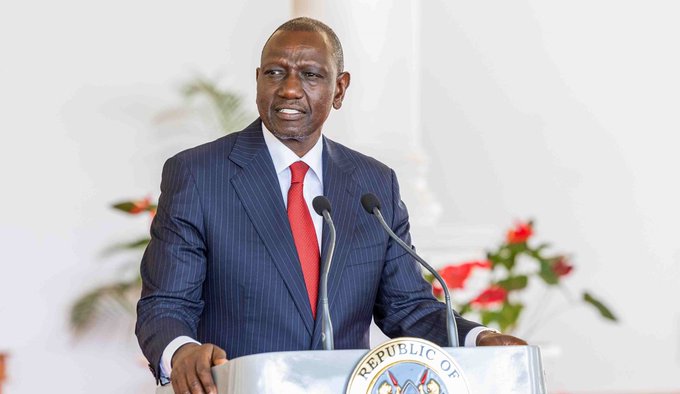By TWV Team
President William Ruto has called on the international community to intensify efforts to dismantle transnational organised crime networks by targeting their financial infrastructures. Speaking at the conclusion of the 23rd Commonwealth Heads of Conference in Mombasa last week, the President underscored that stripping criminal enterprises of illicit proceeds is key to weakening and ultimately eliminating their operations.
President Ruto cautioned that transnational organised crime is becoming increasingly sophisticated, fuelled by emerging technologies and digital platforms. He cited encrypted communications, cryptocurrency, and online anonymity as tools commonly used by criminals to traffic people, launder money, and finance terrorism.
‘The threat of global crime is real and growing,’ he stated. ‘No single agency or country can tackle these complex crimes alone. Through joint investigations, shared knowledge, and pooled expertise, we can dismantle criminal networks.’
He urged prosecutors to adopt innovations, such as artificial intelligence for pattern analysis, to outpace criminals and enhance cross-border justice systems.
Ruto highlighted Kenya’s experiences with terrorism and organised crime, referencing major attacks, including the 1998 U.S. Embassy bombing, the 2013 Westgate Mall siege, the 2015 Garissa University massacre, and the 2019 DusitD2 assault. He noted that improved intelligence, international cooperation, and robust prosecutions have driven Kenya’s counterterrorism progress.
Recent convictions include two individuals found guilty of aiding the DusitD2 attackers, with sentencing scheduled for June. In the Garissa case, three suspects received life imprisonment and 41-year terms in 2019. Currently, 24 terrorism-related cases are active in Kenyan courts, many involving international terrorist affiliations.
The President emphasised the complex financial trails supporting terrorism, noting that the DusitD2 attack’s funding was traced across Kenya, Somalia, and South Africa through multiple banks. He cautioned that criminal syndicates are adapting rapidly, with some members posing as human trafficking victims to cross borders undetected.
Between 2021 and 2024, Kenya recorded over 720 cases related to human trafficking, document fraud, and illegal border movements. In the same period, the Office of the Director of Public Prosecutions (ODPP) prosecuted 30 money laundering cases, illustrating the challenge’s scale.
To address this threat, Ruto called for stronger regional and global cooperation frameworks, proposing enhanced real-time collaboration, mutual legal assistance, and expedited extradition procedures.
Kenya has signed a memorandum of understanding with Azerbaijan, Morocco, Qatar, and Saudi Arabia to jointly combat terrorism financing and other transnational crimes. He stressed that tackling these threats requires sustained commitment and shared resources.
Director of Public Prosecutions Renson Ingonga echoed the President’s concerns, describing the fight against organised crime as a ‘marathon, not a sprint.’ He emphasised the role of digital forensics, asset tracing, and data-driven investigations in prosecutorial work.
‘Understanding the evolving tactics of criminal networks, particularly their use of digital currencies and complex laundering schemes, demands close international collaboration,’ Ingonga said.
The Mombasa conference united heads of prosecution agencies from 19 Commonwealth nations, including Kenya, Uganda, Nigeria, Zambia, Tanzania, and others. Delegates from countries such as Australia, Ireland, New Zealand, and Azerbaijan also attended.
The event provided a vital platform for legal practitioners to share strategies on tackling organised crime and to reinforce the need for globally coordinated action.
President Ruto’s message was clear: the battle against transnational crime requires unity, innovation, and a determined effort to dismantle the financial foundations that enable criminal operations to thrive. Through global cooperation, particularly among Commonwealth nations, Kenya aims to lead the way in building a smarter, more resilient justice system to combat modern criminal syndicates.





